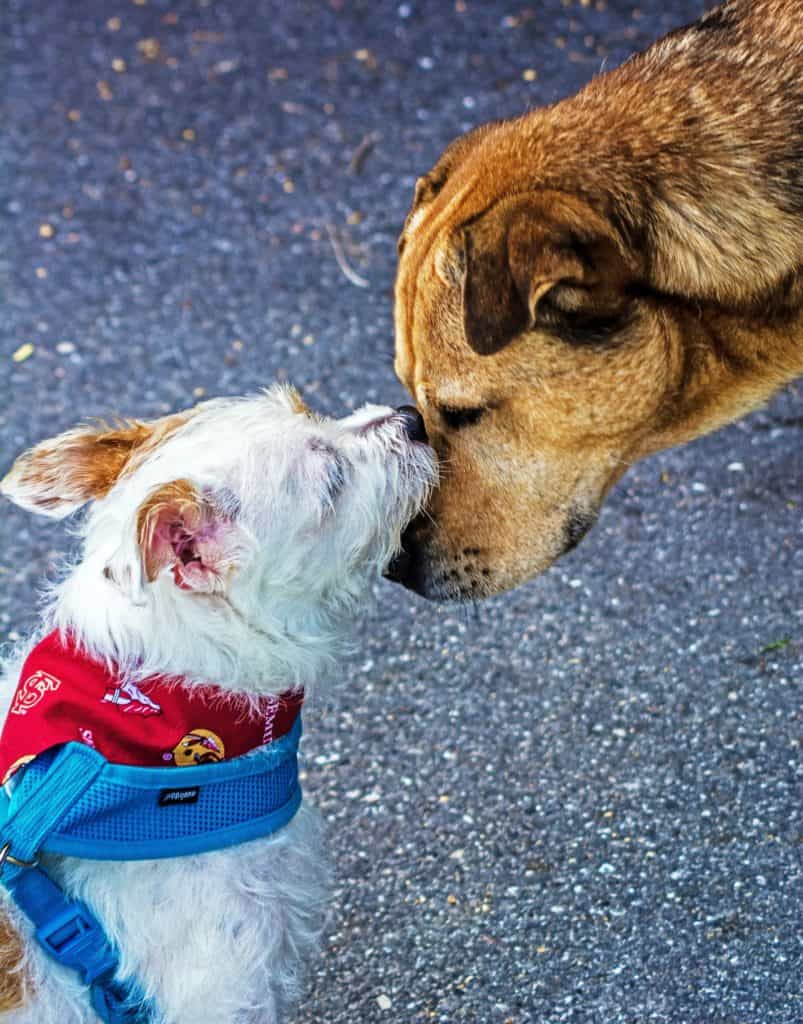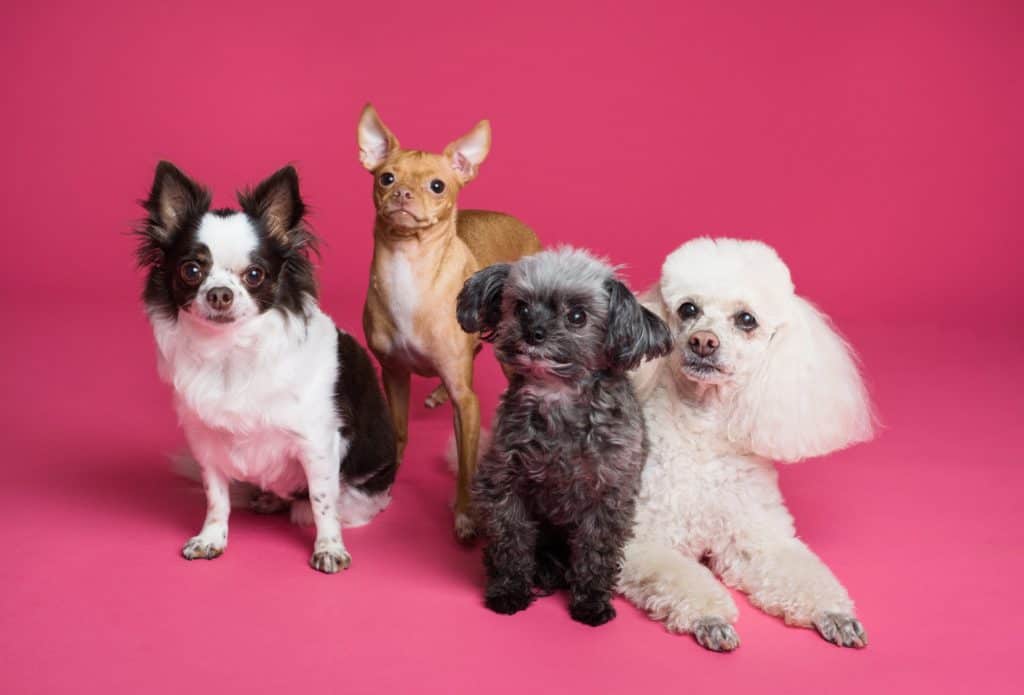Pets can be integral members of a family… and thus, integral members of a community. The average homeowners association, or HOA, welcomes four-legged residents with open arms. With that said, it is perfectly acceptable to have an HOA pet policy, including certain pet restrictions, in place. These HOA pet restrictions can help ensure that all residents of the HOA feel safe and comfortable, while also creating safeguards against things like excessive barking and noise.
If your HOA does not currently have pet policies in place, now may be a good time to consider them. There are a number of homeowners association pet restrictions that can make your community more welcoming to all, while also providing home and condo owners with clear expectations about what kind of pets they may have and how their pets must be cared for.
Homeowners Association Pet Restrictions: Common Examples
Generally speaking, the HOA has the right to determine the number of pets allowed in their community (or, the number of pets allowed in each home), as well as the type of pets permitted. Note that, when we talk about homeowners association pet restrictions, we are mostly talking about dogs. Frankly, the average HOA or condo association doesn’t care what kinds of goldfish or hamsters a homeowner has, and these smaller animals rarely warrant mentions in a pet policy.
With that said, here are a few examples of some of the most common HOA pet restrictions.

1) Rules About Registering Pets
First of all, homeowners associations may require that homeowners register any pets that they have with the association. There is a simple, straightforward reason for this: If the Board of Directors doesn’t know how many pets are in their community, then they cannot realistically enforce dog restrictions or pet rules of any kind.
Basically, the HOA can ask that new home or condo owners report any pets that they own before they move in. Pet regulations may also require that current homeowners fill out a new pet application before they acquire a new dog or cat.
By asking all homeowners to register their pets, the HOA can more easily keep up with pets in the community, follow up with homeowners who are not following the pet restrictions, and even make certain all pets in the community are up-to-date with important vaccinations.
2) Rules About Poop
In addition to HOA pet restrictions, the community can also impose some rules about waste pickup and elimination. In other words, dog rules may require pet owners to keep their front lawns and/or all common areas free of poop and solid waste.
This isn’t just a matter of HOA aesthetics. Keep in mind that animal poop, when left unaddressed, can actually become quite noxious and toxic. In other words, it can be a matter of public health and safety.
As such, it is completely within your HOA’s rights to clearly state that all pet owners must pick up and properly dispose of their animal’s droppings.
There are a couple of specific ways in which your HOA can encourage homeowners to comply with these rules. For one, it helps to offer bags and trashcans throughout the community, making it easy for dog owners to handle the solid waste situation. At the same time, it may be necessary to levy fines or fees against animal owners who do not comply with these important HOA pet rules.
3) Rules About Noise
HOA pet regulations may also encompass barking. To be clear, it’s normal and healthy for dogs to bark sometimes and to generate some noise. It would be unreasonable to expect your community to be barking-free. With that said, dogs certainly shouldn’t bark constantly, nor in such a way that it disrupts life for others in the HOA.
As far as specific pet restrictions go, you can always ask homeowners to report any incessant barking problems they observe to the Board. In some situations, the Board may need to talk with a homeowner about their specific animal, requesting that it be brought inside at night if it is unable to be quiet in the backyard.
Keep in mind that pet owners may sometimes be unaware that their dog’s noise is quite so disruptive to the rest of the community. As such, simply sitting down and talking with them in a relaxed, non-combative way can be helpful. Often, a representative of the HOA can work with the homeowner to develop a strategy for minimizing noise.

4) Rules About Leashes
Something else your HOA can do is require that all pets be on leashes when they are being walked through the neighborhood.
These HOA pet restrictions can be in the animal’s best interests, preventing it from running away or getting lost. But it can also help provide for the safety of others within the community. Remember that even the sweetest, most non-aggressive animals can be triggered if they are placed in scary or unfamiliar situations. Leash requirements can protect everyone in the community.
One suggestion: Your HOA might combine its leash requirements with the creation of a dog park, where pets can run around and expend their energy without needing to be tethered to their owner. This is a great way of appeasing pet owners and making it easier for them to follow the stated rules.
5) Rules About Liability
Finally, it’s generally wise for your HOA pet rules to include some language about liability. Basically, you want to make clear that pet owners are legally liable for the actions of their furry friends. This way, should a pet-related accident or injury occur, the association itself is shielded from any legal vulnerability.
Additionally, rules and regulations that clearly outline liability will help minimize the risk of time-consuming or costly litigation.
Be sure that all home and condo owners know they are legally responsible for any pets that they own, as well as for the actions of any pets that stay as guests on their property. Indemnify the association itself, as well as other residents, against any pet-related damage, injuries, or extreme disturbances.
Pet Rules and Regulations: Additional Considerations
As you think about the best policies and HOA pet restrictions, here are a few additional issues you may wish to keep in mind.
Service Animals
Service animals can play a crucial role in the day-to-day wellbeing of your community members. Make sure that whatever policies you enact leave plenty of flexibility for folks who need service animals in their life, including those who need a comfort animal for emotional support.
Indeed, it’s crucial to note that pet ownership isn’t simply for fun; there may be residents or family members in your community who need dogs or other animals to offer emotional support, and that’s something that’s protected by the Fair Housing Act!
In other words, your HOA or condominium association has a legal obligation to make accommodations for emotional support animals.
Dog Selectivity

If you feel like you need to be a little more narrow in the kinds of animals that live within your HOA, remember that your pet rules may dictate the number of animals allowed in each household. You can also set limitations on pet weight ranges, or else prohibit animals of particular breeds.
Some associations use general language to ban any “aggressive” dog breeds. Just be aware that this can get complicated, as not all owners are going to agree on which dogs qualify as aggressive. And, you may run into trouble if there are certain animals that represent a mix between two breeds.
One specific breed that is often prohibited is the pit bull. Of course, not all pit bulls cause problems, but there is enough evidence of these dogs being aggressive that your HOA may wish to ban this breed completely, just to be safe… especially if you have a lot of young kids in the community, and worry about them being injured through a dog’s aggressive behavior.
In addition to breed, you may want to regulate dogs according to size. Simply put, really big dogs can sometimes be intimidating, and cause residents to be fearful. Consider capping pet size to a certain weight limit. For example, a size ban might prohibit dogs of more than 25 or 30 pounds.
Indoor Pets
Can your HOA make rules about inside pets? The short answer is yes, although these rules can be a bit more challenging to enforce. You may decide that it’s more prudent to simply regulate how animals behave when they are outside or in common areas (leash rules, rules about poop, etc).
These are just a few considerations that may help your association as it drafts pet rules that lead to a safer, more welcoming, and more peaceful community.
More Questions? Reach Out to Kuester Management Group
Most pet owners are understandably sensitive about how their animals are treated. As such, developing pet regulations can be a bit of a contentious issue. You may wish to hire a professional HOA management company to help you draft language and win buy-in from throughout the community.
Kuester Management Group has ample experience partnering with homeowners associations in Charlotte, NC, in Myrtle Beach, SC, and beyond. We would love to work with you to develop smart and effective rulings about dogs and other pets, and to ensure your Board is qualified to enforce these rulings effectively.
Reach out to us whenever you’re ready to chat about pet ownership within your neighborhood, condos, or homeowners association!

